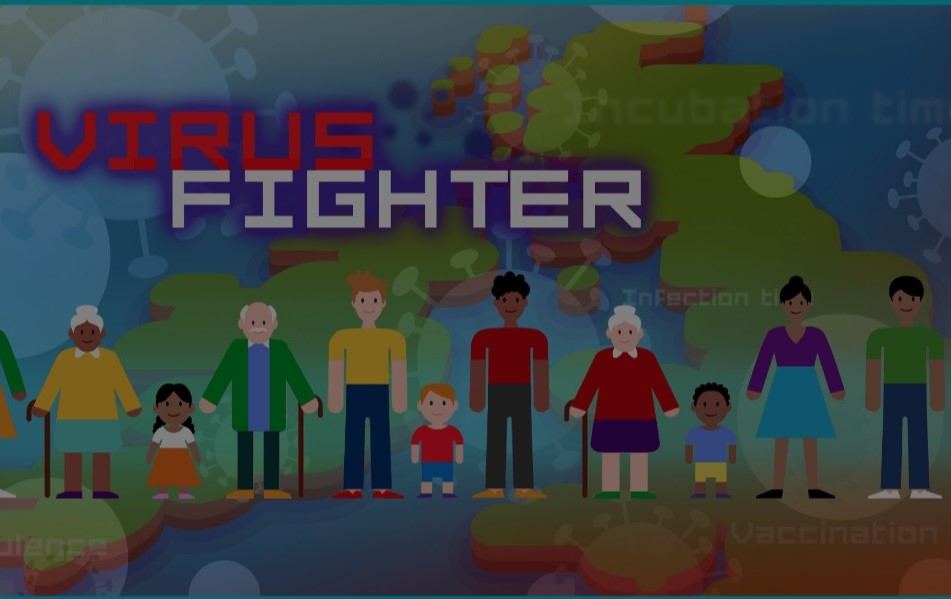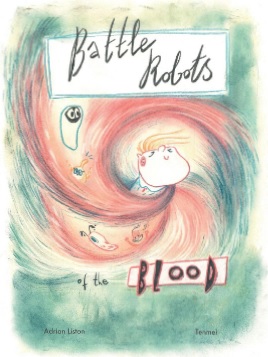Dr Karel-Lodewijk Verleysen Prize
 Wednesday, December 9, 2015 at 1:11PM
Wednesday, December 9, 2015 at 1:11PM Professor Adrian Liston has been selected for the Prijs Dr. Karel-Lodewijk Verleysen for his work on the development of a safe and effective immune system. Professor Liston received his PhD from the Australian National University in Canberra, Australia, for seminal work on the role of the thymus in eliminating autoreactive T cells from the repoirtoire, a process known as immunological tolerance. His doctoral research identified defects in thymic tolerance as a key mechanism in the development of autoimmune disease.

Following his PhD in 2005, Professor Liston moved to the University of Washington in the United States of America in order to continue his research on T cell tolerance, performing some of the earliest experiments on the generation of regulatory T cells, a cell type that has come to dominate the field of autoimmunity in recent years.
Professor Liston was recruited to Belgium in 2009 by the VIB and University of Leuven, where he became a professor (hoofddocent) at the age of 28. In the last 6 years he has built up a laboratory of 15 researchers, dedicated to understanding the mechanisms of immune tolerance failure during autoimmunity and immunodeficiency.
Professor Liston has published more than 90 research papers, over a diverse set of topics in immunology and genetics and with publications in the top international journals such as Nature Immunology, Nature Medicine and Immunity. Of the many important findings, I would like to briefly highlight just four.

First, in collaboration with Cambridge University, Professor Liston identified a new cell type in 2011, the follicular regulatory T cell. This new cell type controls the strength of the antibody responses to vaccination, and is now thought to be important in diseases such as lupus.
Second, in 2012 Professor Liston’s research identified one of the key mechanisms that control the atrophy of the thymus with age. This reduction in the activity of the thymus is thought to be behind the poor vaccine responses of older persons. Professor Liston demonstrated that small non-coding RNA particles, known as microRNA, control the size of the thymus with age by altering the response to normal gut bacteria.
Third, Professor Liston has continued to work on the properties of regulatory T cells. In 2013 he published a seminal paper which systematically tested the signals that drive the life and death of regulatory T cells, identifying the key pathway that controls the quality of immune tolerance. This work is now being translated into immune therapeutics, where regulatory T cells are being seen as a high potential strategy to stop graft versus host disease.
Finally, Professor Liston is actively involved in the medical genetics of immune disorders. In the last few years Professor Liston has been working with clinicians at UZ Leuven to unravel the genetics behind patients with severe early-onset autoinflammation and immunodeficiency. This work has brought next generation sequencing into the diagnostic arena in immunology at UZ Leuven, and has identified several new immune disorders, such as the combined immunodeficiency and vasculopathy disorder caused by ADA2 mutation and several new genetic causes for immunodeficiency. Professor Liston is working hard to bring these advances in genetics into the standard diagnostic process, so that the genetic mechanism can inform on treatment options.

During his 6 years in Belgium, Professor Liston has received several major funding awards, including a Marie Curie Fellowship, a Juvenile Diabetes Research Foundation Career Development Award and a European Research Council Start Grant, bringing more than €3 million of international research funding into Belgium. He is a member of many national and international consortium and founded and directs the flow cytometry core facility in Leuven. Professor Liston is also active in science education and community outreach. For these contribution to medical research in Belgium, Professor Adrian Liston has been selected for the 2014 Prijs Dr. Karel-Lodewijk Verleysen.
 Adrian Liston
Adrian Liston
Dutch translation of the award citation:
Professor Adrian Liston werd voorgedragen voor de Prijs Dr. Karel-Lodewijk Verleysen voor zijn onderzoek naar de ontwikkeling van een gericht en effectief afweersysteem. Professor Liston voltooide zijn promotieonderzoek aan de Australian National University in Canberra, Australië. Hier verrichtte hij baanbrekend onderzoek naar de rol van de thymus bij het elimineren van zelf-reactieve T cellen uit het T cel repertoire – een proces dat bekend staat als immunologische tolerantie. Hij toonde aan dat bepaalde defecten in de tolerantiemechanismen in de thymus ten grondslag liggen aan de ontwikkeling van auto-immuunziekten.
Na het behalen van zijn doctoraat in 2005 zette Professor Liston zijn onderzoek naar T cel tolerantie voort aan The University of Washington in de USA. Hij onderzocht hier als een van de eerste wetenschappers de ontwikkeling van regulatoire T cellen, een type cel dat de laatste jaren het onderzoek naar auto-immuunziekten is gaan domineren.
Professor Liston werd in 2009 door het VIB en de Katholieke Universiteit van Leuven in dienst genomen als hoogleraar, op de zeer jonge leeftijd van 28 jaar. Gedurende de laatste 6 jaar heeft hij een laboratorium opgebouwd waarin hij leiding geeft aan 15 onderzoekers. Zijn laboratorium heeft als focus het ontrafelen van de mechanismen die aanleiding geven tot het falen van immunologische tolerantie bij auto-immuunziekten en immuundeficiënties.
Professor Liston heeft meer dan 90 wetenschappelijke artikelen gepubliceerd, waarin een breed scala aan immunologische en genetische onderwerpen aan de orde komt. Zijn publicaties zijn verschenen in invloedrijke internationale wetenschappelijke tijdschriften, zoals Nature Immunology, Nature Medicine and Immunity. Van zijn vele belangrijke ontdekkingen wil ik er vier kort uitlichten.
Als eerste heeft Professor Liston in 2011, in samenwerking met de Universiteit van Cambridge in het Verenigd Koninkrijk, een nieuw celtype ontdekt, genaamd de folliculaire regulatoire T cel. Dit celtype reguleert de mate van antilichaam respons na vaccinatie, en men vermoedt dat dit celtype een belangrijke rol speelt in auto-immuunziekten zoals lupus.
Als tweede heeft Professor Liston in 2012 één van de mechanismen geïdentificeerd die ten grondslag liggen aan het atrofiëren van de thymus tijdens veroudering. Het gebrek aan een goede vaccinatie respons bij ouderen kan te wijten zijn aan deze afname van thymusactiviteit. Professor Liston toonde aan dat de leeftijdsgebonden grootte van de thymus wordt gereguleerd door kleine stukjes niet-coderend RNA, of micro-RNA, doordat deze de respons tegen normale darmbacteriën aanpassen.
Als derde heeft Professor Liston zijn eerdere werk aan regulatoire T cellen voortgezet. In 2013 publiceerde hij een grensverleggend artikel waarin systematisch de signaalmoleculen werden bestudeerd welke beslissen over leven en dood in regulatoire T cellen. Tijdens dit onderzoek identificeerde hij het fundamentele mechanisme dat de mate van immunologische tolerantie bepaalt. Deze resultaten worden nu toegepast bij de ontwikkeling van therapieën voor graft versus host disease, waarbij het gebruik van regulatoire T cellen beschouwd worden als een veelbelovende nieuwe strategie.
Als laatste is Professor Liston actief betrokken bij het medisch-genetisch onderzoek van immuundeficiënties. Hij heeft de laatste jaren nauw samengewerkt met de clinici van het UZ Leuven om de genetische achtergrond van jonge patiënten met ernstige auto-immuun-ontstekingsziekten en immuundeficiënties te bepalen. Dit project heeft “Next Generation Sequencing” geïntroduceerd als nieuwe diagnostische test in het UZ Leuven. Verschillende nieuwe ziekten van het immuunsysteem zijn inmiddels ontdekt, zoals de gecombineerde immuundeficiëntie en vasculopathie die wordt veroorzaakt door een mutatie in het ADA2 gen. Ook voor andere immuundeficiënties zijn verscheidene nieuwe genetische oorzaken gevonden. Professor Liston zou graag zien dat deze nieuwe genetische technieken toegevoegd worden aan de gangbare diagnostiek, zodat het genetisch mechanisme achter deze ziekten wellicht aanwijzingen kan verstrekken voor verbeterde therapeutische opties.
Gedurende de 6 jaar die Professor Liston nu in België werkt is hij zeer succesvol geweest in het verkrijgen van onderzoeksfinanciering. Met de toekenning van een Marie Curie Fellowship, een Career Development Award van de Juvenile Diabetes Research Foundation, en een Start Grant van de European Research Council heeft hij meer dan 3 miljoen euro aan internationale onderzoeksfinanciering voor België verzekerd. Hij is lid van vele nationale en internationale consortia en heeft in Leuven een core faciliteit voor flowcytometrie opgericht, waarvan hij directeur is. Professor Liston is actief in het wetenschapsonderwijs en in wetenschapscommunicatie, met als doel een breed publiek bij het wetenschappelijk onderzoek te betrekken. Voor deze bijdragen aan het medisch onderzoek in België, is Professor Adrian Liston voorgedragen voor de 2014 Prijs Dr. Karel-Lodewijk Verleysen.
 Liston lab
Liston lab 








